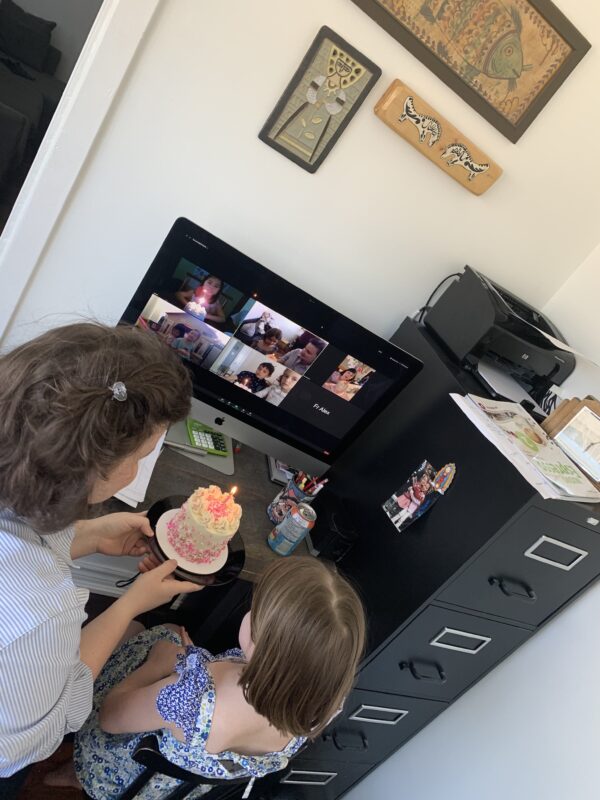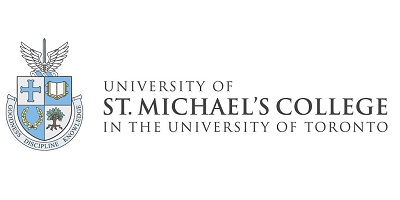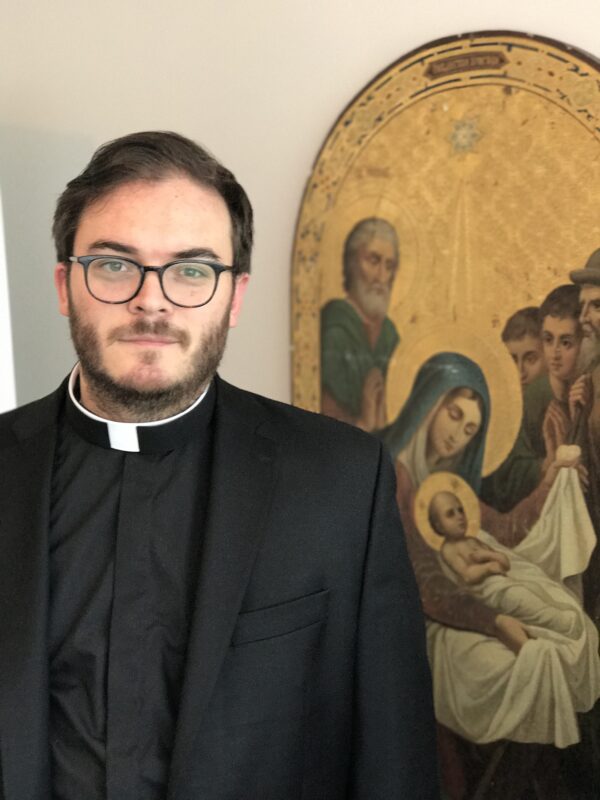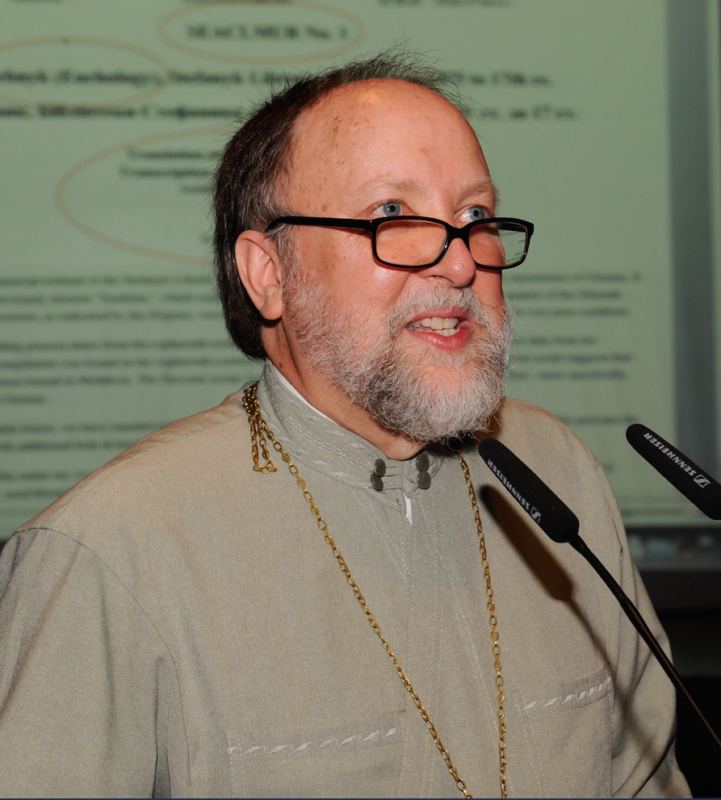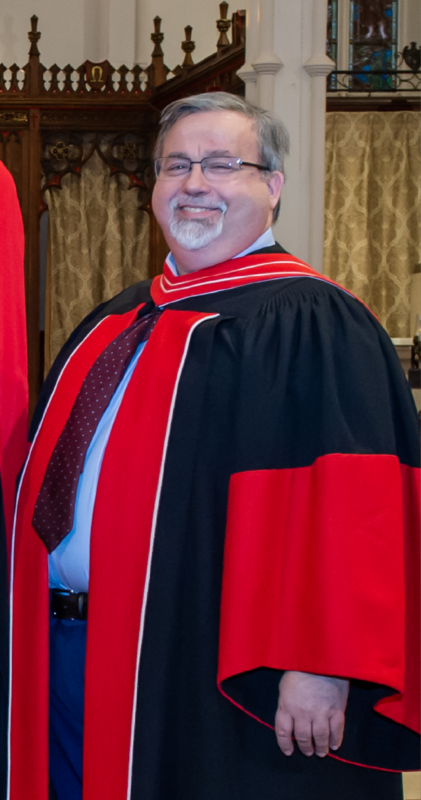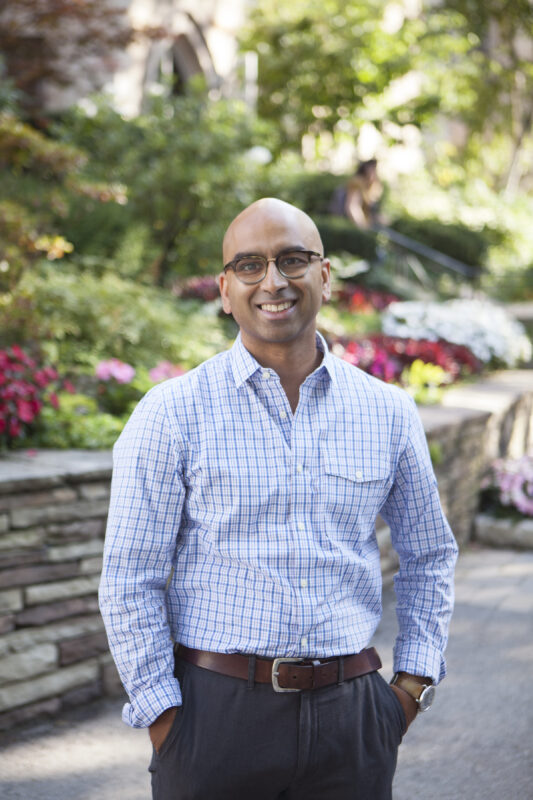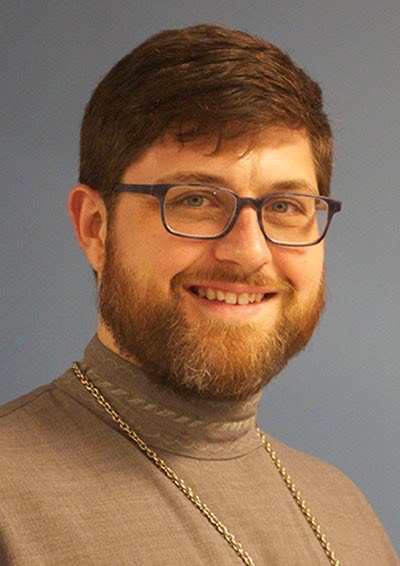
Father Andrew Summerson has joined St. Michael’s Faculty of Theology as Assistant Professor of Greek Patristics. Describing his work in Patristics as a vocation, Summerson says that, as a Byzantine Catholic priest and a scholar of the tradition, his goal is “to be a responsible interpreter for its members and for the scholarly and ecumenical community of theologians. As Eastern Catholics, our theological grammar is that of the Fathers. In order to be properly fluent in my own tradition, I went about learning their language.”
Summerson holds an S.Th.D. in Patristic Theology from the Pontifical Patristic Institute “Augustinianum” in Rome. His book, Divine Scripture and Human Emotion in Maximus the Confessor: Exegesis of the Human Heart, was published by Brill earlier this year.
His most recent teaching appointment was at Calumet College of St. Joseph, in Indiana.
“Andrew’s passion for, and dedication to, Patristics will serve our students well. We have pleased to have such a strong addition to the Faculty” says Interim Dean John L. McLaughlin.
“The University of St. Michael’s College has a proud history in its concern for historical studies while engaging the contemporary world,” says Summerson. I see my own work for St. Michael’s with the Metropolitan Andrey Sheptytsky Insititute of Eastern Christian Studies as aligned with St. Michael’s heritage: engaging the touchstones of the Eastern Christian past for the life of the world we live in today.”
In the fall semester, Summerson will teach History of Christianity I and Foundations to Eastern Ethics, while in the winter semester he will teach Contemporary Issues in Eastern Christian Moral Theology and The Three-Personed God: Eastern Christian Perspectives.
Early Christian texts aren’t meant to be sipped like wine; they must be chugged like beer,” he says. “I like to read primary sources with my students and treat them not like delicate artifacts, but living voices that speak true statements about God and the Church today.”
Summerson’s position is a Contractually Limited Term Appointment. The position, which is renewable twice to a maximum of three years, is held in conjunction with the Metropolitan Andrey Sheptytsky Institute of Eastern Christian Studies.
Maria Ivaniv is a third-year PhD student at the Faculty of Theology at the University of St. Michael’s College. Her current research, done in conjunction with the Metropolitan Andrey Sheptytsky Institute of Eastern Christian Studies, focuses on the participation of the Ukrainian Greco-Catholic Church at the Second Vatican Council and its reception of the Council in North America. She holds ReMA, MA, and STL degrees in theology and religious studies from the Catholic University of Leuven, Belgium, and MA and STB degrees in theology from the Ukrainian Catholic University. Maria was a lecturer at Three Holy Hierarchs Kyiv Theological Seminary (Kyiv, Ukraine), a teaching assistant in the Theology Department at the Ukrainian Catholic University (Lviv, Ukraine), and served as Secretary of the Patriarchal Commission for the Laity of the Ukrainian Greco-Catholic Church (Lviv, Ukraine).
The Pain of Separation, the Joy of Unity
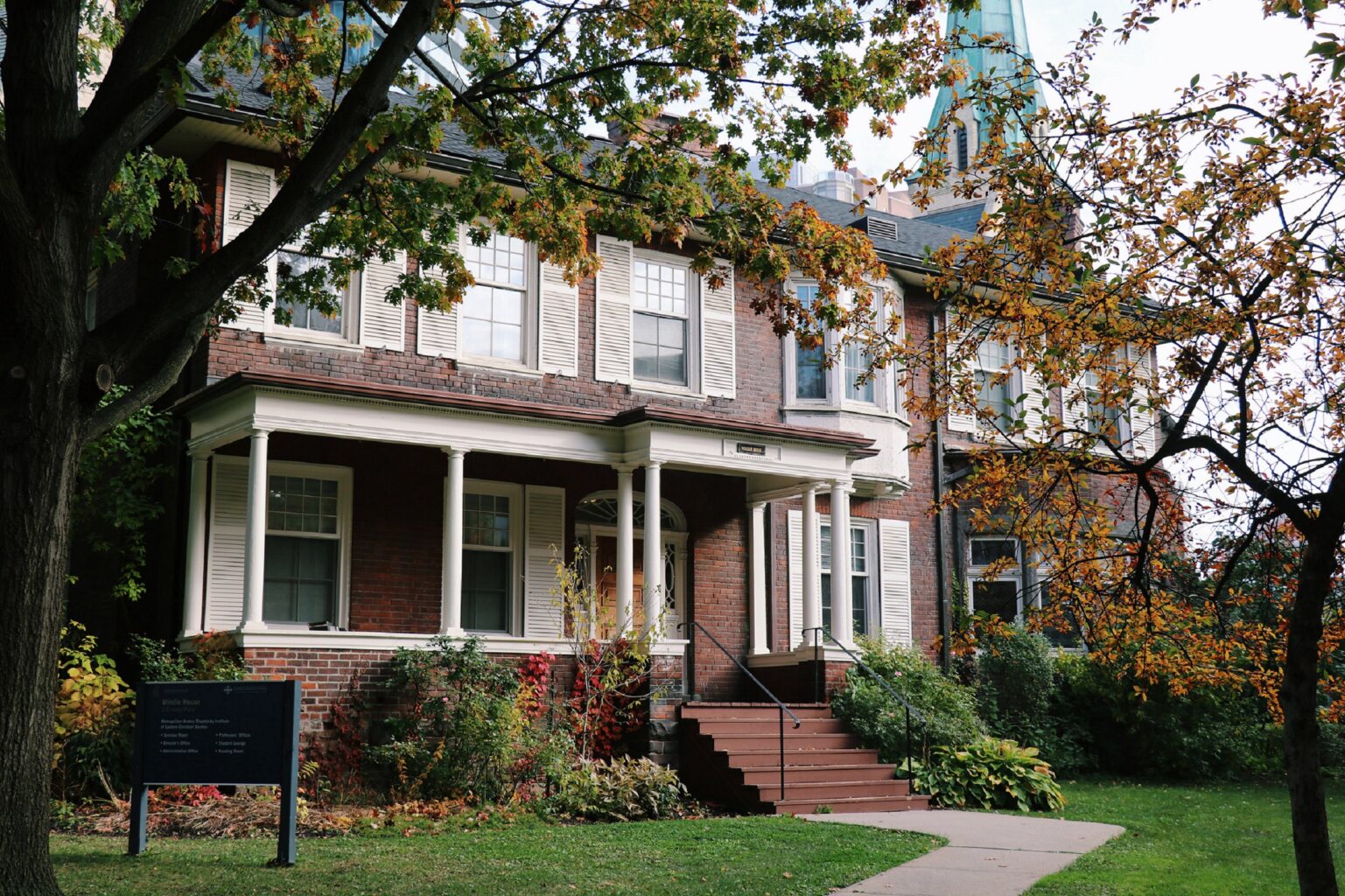
In this time of pandemic and lock-down…we are separated by public and health recommendations, law, and fear for ourselves and our loved ones. In this situation, I desire to be reunited with friends, family, and significant other. I expect that you feel the same way. This pain, which I feel in my heart, reminds me of a time when we could be together and be joyful and content in being together.
This experience can give us a chance to reflect on unity and what it means to be united or to desire unity with others. It can help us think about the question of Church unity, especially during the Week of Prayer for Christian Unity, which for more than a century has occurred every year from January 18–25. In this little blog post I will reflect on the pain of separation, the joy of unity, and my identity as a Ukrainian Greco-Catholic in the midst of these.
I can recall a few moments in my own life when I have felt the pain caused by the separation among Christians. I keep those experiences in my heart as a reason to work for unity. The first time my heart felt the pain of separation was in Amsterdam, where other students and I were attending an ecumenical conference. That was, in fact, one of my first experiences of listening to and speaking with other Christian denominations. It was exciting to see that there are a lot of themes that unite us. As a part of that meeting, we went to a Sunday service in one old and lovely English Reformed Church. There was a wonderful service and sermon. It was the Sunday of the Cross in my Church calendar, and I was happy that the preaching was about the symbol of the Cross and its importance in the Christian life as the sign of our salvation. After that, however, I was disappointed at the absence of the Eucharist in the service, and it brought me some pain. I understood that I could not have received it anyway, but the pain of not seeing the Eucharist—what I understand to be the realization of unity—as part of the Sunday service profoundly pained my heart.
Another experience that brought the pain of separation into focus came during an ecumenical conference a few years ago. The conference was an excellent opportunity for dialogue and sharing about what unites us. Common prayer was part of that conference, and one of the prayer services was a Byzantine Divine Liturgy presided at by an Orthodox priest. It was nice to pray together in one of the ways that I pray in my own parish. But the pain again struck my heart during Communion… Because of the separation, I could not share Eucharist with those who pray in the same way I do. The pain caused by these two experiences of Christian disunity remains. And it creates in me a longing for unity—a unity that heals the wounds among Christians as well as the wound left in my own heart.
Happily, my heart is also marked by other, more joyful experiences. It seems to me that pain alone cannot bring us together—we also need to feel the joy of unity. Studying at the Toronto School of Theology is one of these experiences. Being part of the University of Saint Michael’s College and studying together with other students of different Christian denominations brings me a lot of joy. Also, the presence of the Metropolitan Andrey Sheptytsky Institute of Eastern Christian Studies at Saint Michael’s brings a different voice and many opportunities for the students to experience and learn about other traditions. This experience of common work, studies, prayer, and friendship reveals a lot of differences; at the same time, simply being together unites us.
As I mentioned before, I am a Ukrainian Greco-Catholic. This means that I belong to an Eastern Church of the Byzantine Rite that is in union with Rome. There are 23 Eastern Catholic Churches in the world. Being an Eastern Catholic is beautiful but challenging in some ways. I experience all the beauty of Byzantine prayer, eastern spirituality, and magnificent iconography. I also enjoy all the beauty of the Latin Church, its theology, prayer, and teachings. Living in these two spheres simultaneously gives me the feeling that I see a glimpse of unity among the churches, and I feel the pain of separation and the joy of unity at the same time. But I know there is a long way to go, and all of our efforts are not enough if we do not call on the Holy Spirit to unite all Christians, as He did at Pentecost. Therefore, this Week of Prayer for Christian Unity gives us an excellent opportunity to be together (even if it is virtually), pray, be joyful and ask the Holy Spirit to unite us.
It seems appropriate to finish this little blog post with the words of the Kontakion of Pentecost:
“When the Most High came down and confused the tongues, He parted the nations. When He divided the tongues of fire, He called all to unity; and with one voice we glorify the all-Holy Spirit.”
Read other InsightOut posts.
Fr. Alexander Laschuk, PhD is a priest of the Ukrainian Catholic Eparchy of Toronto. He is currently the Interim Executive Director of the Metropolitan Andrey Sheptytsky Institute in the Faculty of Theology, in addition to his responsibility as Judicial Vicar of the Toronto Regional Tribunal. He lives in Trinity-Bellwoods with his wife and daughter.
Finding Stillness in Chaos
I am a Catholic priest. Unlike most you know, I am married and have a six-year-old daughter (with number two on the way). Also unlike most priests you know, I do not spend much of my ministry in a parish. Instead, I live my priestly ministry in the curia, where I work as a canon lawyer. There are seven dioceses in Ontario for which I am responsible. Additionally, I seem to have a specific skill set—I fix problems. Sometimes those problems are in my own Eparchy, which extends from the Ontario border to the Atlantic. At other times my service is to the universal Church, which brings me to dioceses throughout the English-speaking world. My ministry means I am frequently away from home, which can add up to two or even three months in a year.
This all came to a crashing, screeching halt in March. I remember my last day in the office with my staff—we already were encouraging people to work from home. It was the feast of St. Joseph and there were zeppole on my desk. The State of Emergency was declared shortly thereafter, and we all began a brave new adventure.
In my case, this has meant being physically grounded—a real blessing in some ways as now I am home every day to put my daughter to bed. But it has also been chaos. When the Archdiocese moved to “remote work” except for essential staff it meant that in addition to my own job I suddenly had to keep 26 people busy. We were in the midst of opening a new tribunal office in the suburbs to remove the “physical distance” that, Pope Francis reminds us, prevents people from accessing the tribunal.
In our small Ukrainian Eparchy many parishes needed help applying for government support; I became the go-to guy with all these acronyms that soon became all too familiar: ROE, CERB, CEWS, and CEBA. At our parish in Trinity-Bellwoods, instead of hearing Easter confessions I became a videographer and learned far too much about live-streaming, while at my daughter’s school, the online class sessions every morning and afternoon became the anchor of her (and our) day. I realized how lucky we were when I spoke to other kindergarten parents whose children would only have one (or no) session a week.
My wife, who suffers from difficult pregnancies, was often bed- or couch-ridden and was, as I termed her, a “quarantine professional” who never left the apartment except for medical appointments. The usual downtown comfort of the constant hum of people and traffic turned into silence, and often the only sounds were screams in the night from the growing number of people on the street and in the park with nowhere else to go. As bedtime not so quickly approached for my daughter, there would be the silent prayer to God: just one more hour, Lord. Get us there, peacefully if possible. When she’d finally go down it would be frantic work until I fell asleep to catch up on all those things left behind in the workday.
More than four months have passed. The world is awakening from its pandemic-induced slumber. We have set up a chapel in the parish archives where I celebrate mass with my wife and daughter. For my daughter’s sixth birthday we ran around individual cakes for her party on Zoom. We’re getting really good at making dinner as a family instead of constantly eating out. I’ve started a new job as Interim Executive Director at the Metropolitan Andrey Sheptytsky Institute here at USMC. I can’t go into my office at Windle House and my predecessor can’t move out. I’ve not been on an airplane in six months. Our new home has been delayed nearly a year. The parish has spent thousands on PPE. I overhear my daughter giving her friends Zoom advice. My car dashboard is covered in blue masks. My wife rejoices that we’ve almost run out of hotel shampoo.
This time has left me frequently thinking of Elijah, who we call Elias in the East. When he went to find the Lord God, the Voice was not in the earthquake, nor the fire, but in the light breeze (3 Kings 19). Here, in the unnatural silence of abandoned downtown, the Voice of God blows with the breeze across the abandoned storefronts and the tents in the park. I hope we can all find a moment to stop and hear it, finding stillness in this time of chaos.
Read other InsightOut posts.
The Metropolitan Andrey Sheptytsky Institute (MASI) heads into the 2020-2021 academic year with new leadership and a new faculty position in Patristics.
Fr. Alexander M. Laschuk has been named Interim Executive Director of MASI following the retirement of Fr. Peter Galadza on June 30 of this year. Fr. Laschuk is a priest of the Ukrainian Catholic Eparchy of Toronto and Eastern Canada, and serves in numerous ministries, including as Judicial Vicar of Toronto’s marriage tribunal. Until recently, he was also economos, or finance officer, of the Eparchy of Toronto and Eastern Canada. Fr. Laschuk has civil and ecclesiastical doctorates in canon law from Saint Paul University and the University of Ottawa. His research interests include ecclesiology, penal law, and procedural law and he regularly publishes in these areas in addition to canonical consultancy and advocacy work with dioceses and clients across North America.
Fr. Laschuk has regularly taught with the Sheptytsky Institute since 2010, and continues to teach in the Faculty of Canon Law at Saint Paul University, Ottawa, where he served as Interim Director of the Sheptytsky Institute in 2013-2014.
Dr. Sean Argondizza-Moberg has joined MASI on a one-year Contractually Limited Term Appointment as an Assistant Professor in Greek Patristics. Specializing in Christian asceticism in late antiquity, Dr. Argondizza-Moberg earned his doctorate at Catholic University of America’s Center for the Study of Early Christianity. The position, located within the Sheptytsky Institute, is renewable to a maximum of three years. Dr. Argondizza-Moberg is currently working on a book on monasticism and classical culture.
“We are delighted to have both Fr. Laschuk and Dr. Argondizza-Moberg joining us,” says Dr. John L. McLaughlin, Interim Dean of the Faculty of Theology. “Fr. Laschuk is a skilled academic who will offer strong leadership at MASI as it looks toward the future, while Dr. Argondizza-Moberg’s work in Patristics will strengthen our offerings to students in this key field.”
The Sheptytsky Institute is an autonomous academic unit of the Faculty of Theology of the University of St. Michael’s College (USMC) in the University of Toronto (U of T). It specializes in Eastern Christian Studies, including the theology, spirituality, liturgy, history, and ecclesial polity of the Eastern Christian Churches, both Orthodox and Catholic. MASI students specialize in Eastern Christian studies within the basic-degree and graduate degree programs of St. Michael’s College. All degrees are conjointly conferred by St. Michael’s College and the University of Toronto.
St. Michael’s pulled out all the (virtual) stops on Thursday to honour three key leaders as they move on to new roles and responsibilities. More than 90 people gathered online to celebrate the careers—thus far—of Principal Randy Boyagoda, Theology Dean James Ginther and Fr. Peter Galadza, Director of the Metropolitan Andrey Sheptytsky Institute of Eastern Christian Studies (MASI).
Festivities began with a slideshow of each man in action on campus—Fr. Peter with students at Windle House, Dean Ginther presiding at convocation, and Principal Boyagoda in Rome with Gilson Seminar students—all set to the jazzy strains of Natalie and Nat King Cole’s duet of “Unforgettable.”
Then President David Sylvester kicked things off with a welcome to guests, who ranged from students and Collegium members to colleagues and family. Dr. Sylvester recalled his own welcome party two summers ago, bemoaning the fact that the assembled could not celebrate in person in the sunshine of Scollard Park, as he had been feted.
As the program unfolded, however, the inability to gather together did not stand in the way of heartfelt praise for each man. Dr. Ginther offered a tribute to Fr. Galadza, who is retiring from MASI, citing his “dogged commitment to academics,” his “passion for Eastern Christian studies” and his deep faith.
The Dean recalled that even though the two men were doing doctoral studies at the same time at St. Mike’s, it was only during the negotiations in 2017 to bring MASI from St. Paul’s University in Ottawa to St. Michael’s that they met, and Dr. Ginther expressed great admiration for Fr. Galadza’s dedication to students, MASI and the Church.
In response, Fr. Galadza offered his thanks, and expressed his delight at finally being able to spend more time with Olenka, his wife of 41 years.
“God bless all of you,” he said, and guests responded with a flurry of virtual toasts and clapping emojis.
Then Dr. Sylvester offered thanks to Dean Ginther for his service to the Faculty of Theology, noting that, as both men are mediaevalists, the former knew the latter’s academic reputation long before the two met, given Dr. Ginther’s profile as a scholar of Robert Grosseteste and his work in digital humanities.
Calling him a champion of the Faculty, the President cited the Dean’s “tireless work” in renewing the graduate division of St. Michael’s, citing three new hires as an exciting indication of things to come.
Dr. Ginther responded with thanks to faculty staff and his colleagues, and told those assembled how much he is looking forward to returning to the classroom after his year-long research leave.
“It’s been 12 years” since he’s had a leave, he noted.
This prompted another flurry of toasts and clapping icons.
Then it was Dr. Boyagoda’s turn to be honoured. With some gentle teasing, the President noted that if he left anything out in his introduction “Randy would fill it in.”
Dr. Sylvester thanked the outgoing Principal for his vision for St. Michael’s, noting that he was at the forefront of the renewal of the university’s programming and repetition, helping to restore St. Mike’s to its place as the leader in Catholic education.
In his response, Dr. Boyagoda, who has been named Vice Dean, Undergraduate in the Faculty of Arts & Science at the University of Toronto, offered thanks to many people, and then concluded his remarks with an anecdote.
He had just been the basement of Elmsley Hall with a young colleague to seek out furniture for the office he will maintain at St. Mike’s, as he will teaching the Gilson Seminar next year. The new employee who greeted him thought he was a student.
“I’m leaving here feeling young!” he proclaimed, and everyone offered a virtual toast.
Then came a round of comments from such notables as Collegium Chair Fr. Don McLeod, CSB, and Dr. Christopher Brittain, Dean of Divinity at Trinity College.
It was not the in-person party that anyone had imagined, but it was a heartfelt send-off, and the community wishes all three godspeed as they head off in new directions.


